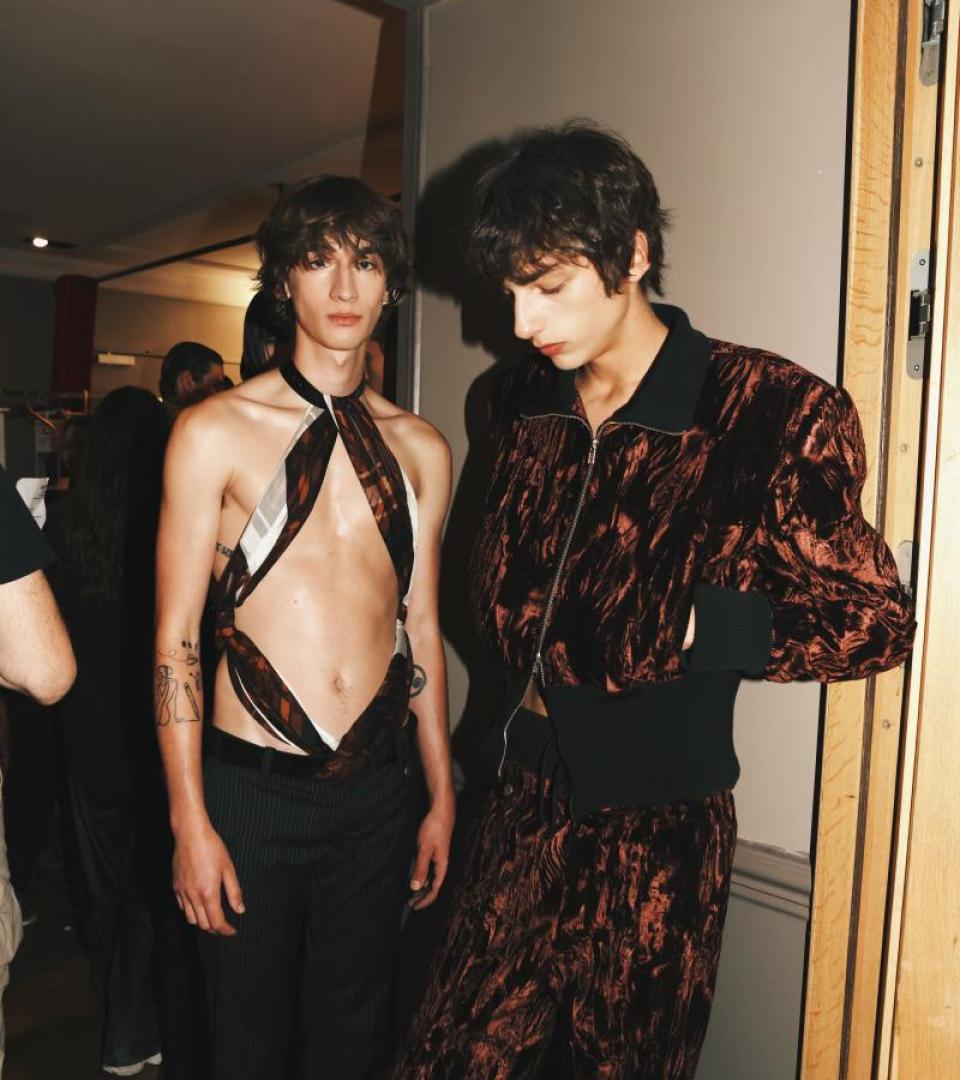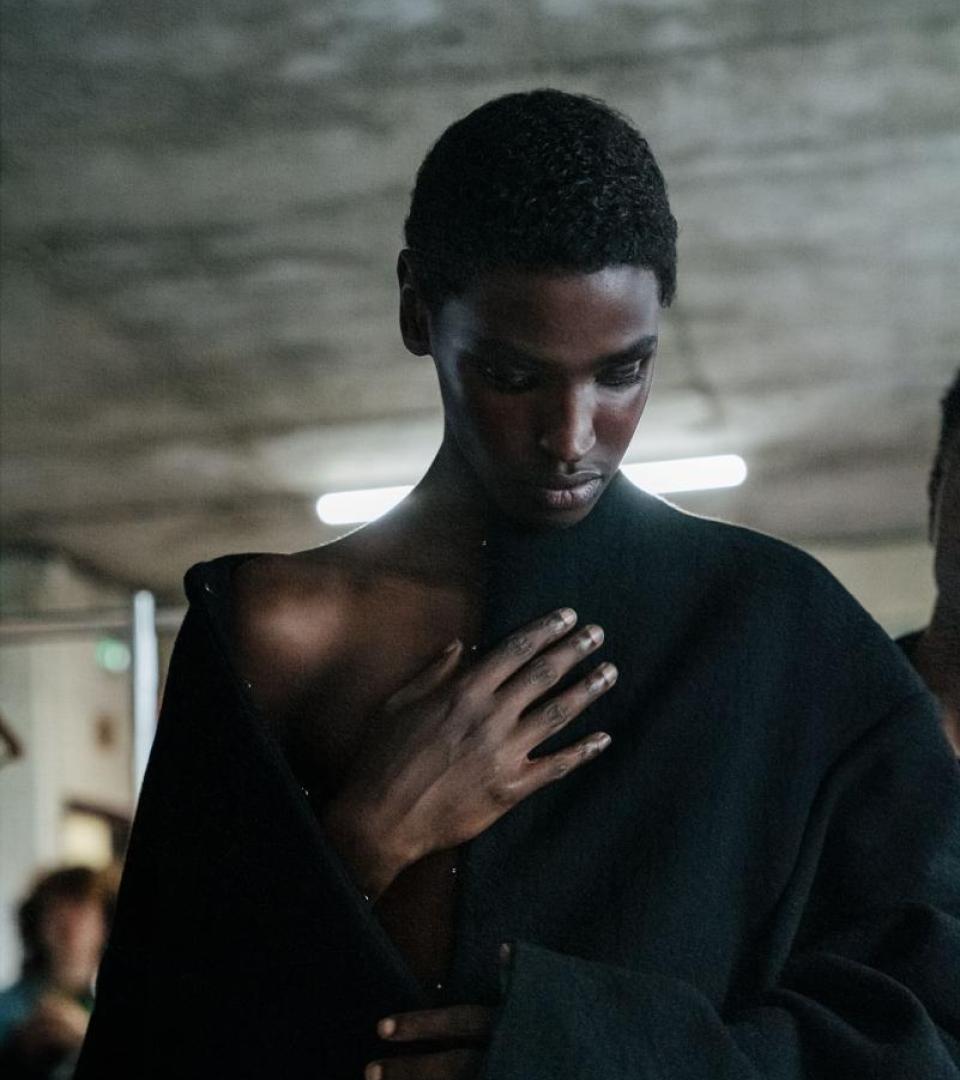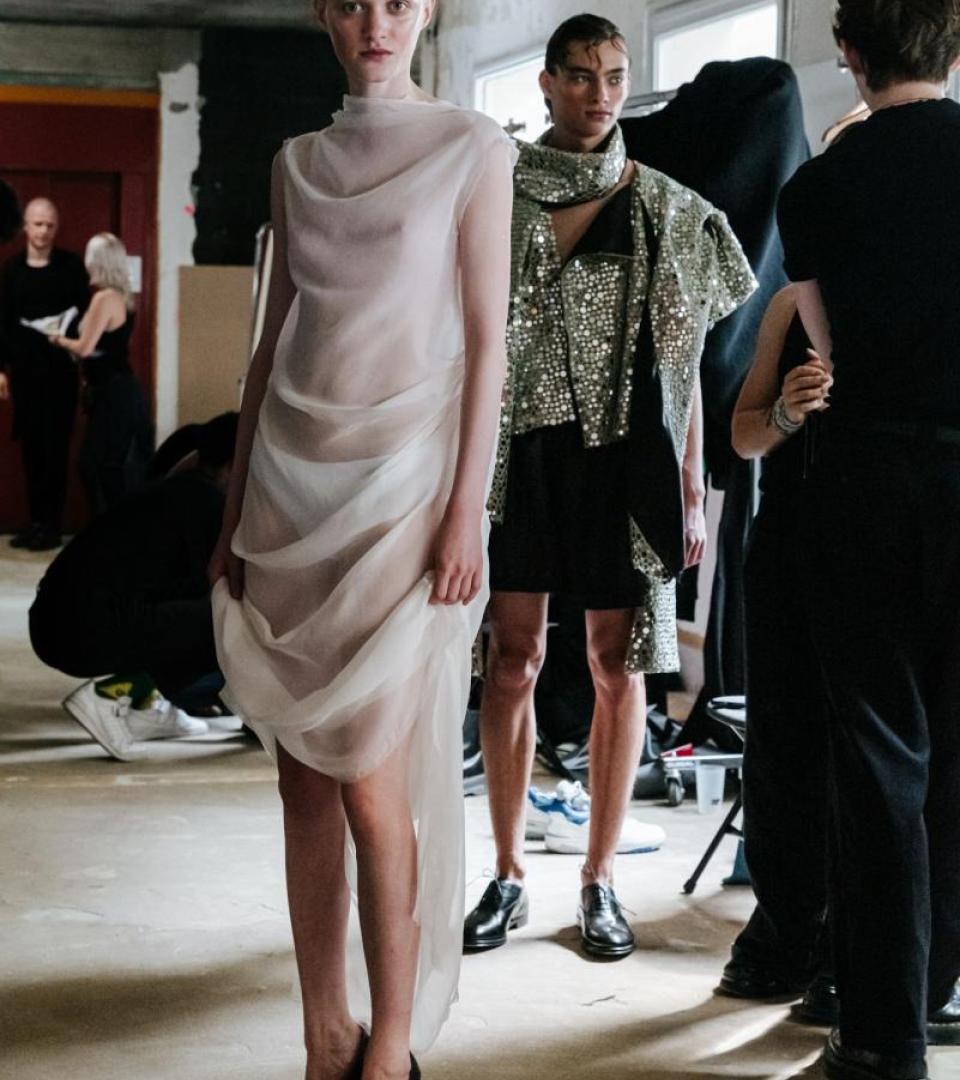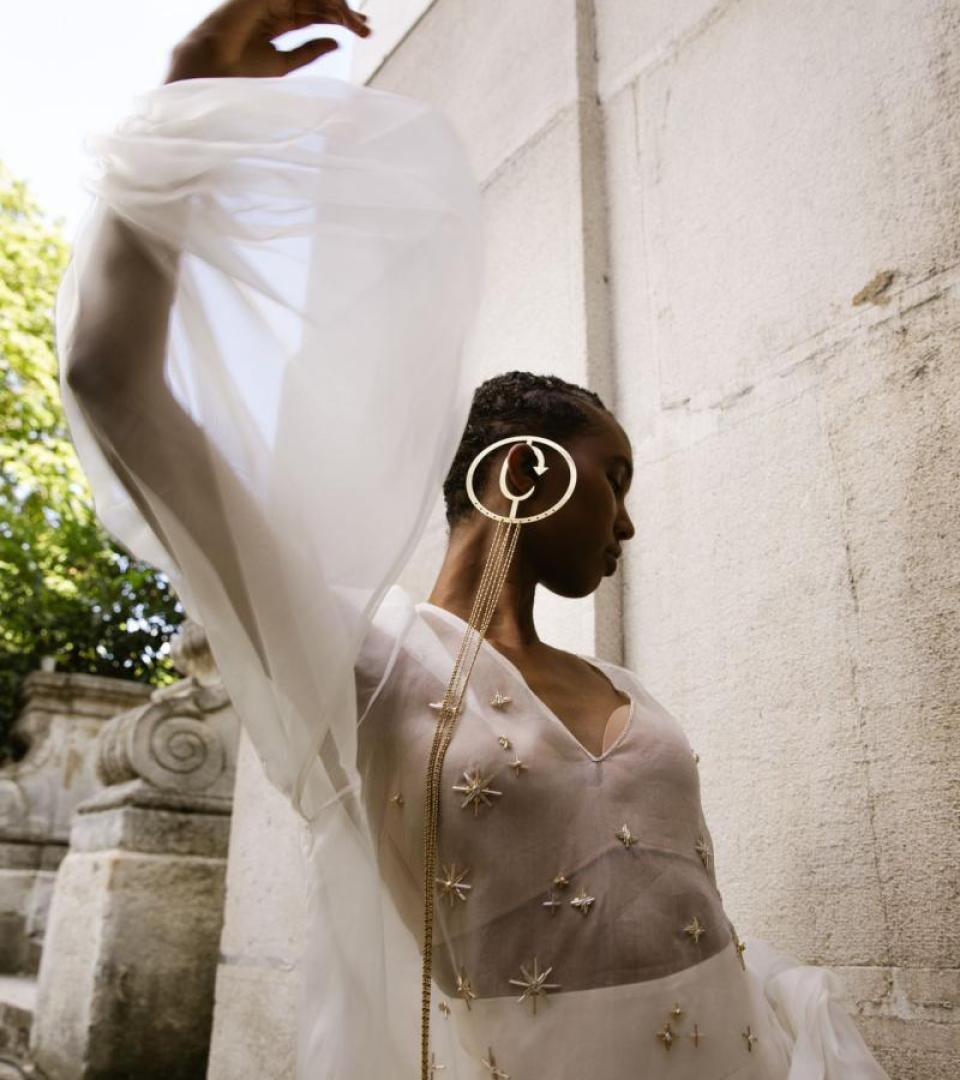How do you materialise an emotion? How do you give form to what shifts, overwhelms, resists capture? All the Feelings and None at the Same Time” is Giorgadze's answer, by gathering fragments. A patchwork spanning ten years of work, paintings sit alongside photographs, collages next to writing. Does the feeling dictate the medium? “Yes, definitely! It's very image-driven, shapes concentrate my attention. It's always about abstractness, ambiguity, like a sculpture of an emotional core,” he explains. “Sometimes images are not perfect in a sense as a composition, but reflect a very strong emotional value.” Here, what began as an intimate confession has become shared territory: the deeply personal yet reaching towards the universal. “It's a mix of how the world perceives and portrays love and how we connect to each other.” The title captures that contradiction perfectly, the experience of feeling everything and nothing at once, of being flooded and empty simultaneously. On the cover, a phrase appears: “Space between the emotions and your reactions.” It is strking how it sounds like the very definition of an artwork, that pause before feeling crystallises into action, where everything remains unresolved, open. “It is very personal in a way, and 'yours' means it's not only about my experience, but it's about the world.
Giorgadze was born in Tbilisi, Georgia, and settled in Berlin at 19 to study art. Institutional education didn't hold. “I went to art school but I never graduated. I just pursued fashion photography instead but never stopped painting.” The two practices have fed each other ever since, his personal work refreshing what he brings to commercial projects, while fashion provides structure when emotion threatens to dissolve into pure feeling.
“When I was growing up in Tbilisi, there were no examples for me, no one to identify with."
Before Paris or anywhere else, the book launched first in Tbilisi, a deeply symbolic choice “especially in countries like mine where there's not so many representation of people out there, beside Demna… It's not a very elitist circle, we don't really have that. So I think it was important for someone like me to do it.” Growing up, the absence of representation was tangible. “There were no examples for me. This is something I wish I had seen then. Now, I want to be that for someone else.” The book also includes a conversation with New York-based writer, Michael Bullock. “He is a friend of mine and I thought it was important to have someone that is also a queer writer and does not know about my culture, someone from outside,” Giorgadze says. Perhaps it speaks to something larger: that queerness creates its own bonds, transcending the divergent cultures one grew up in. Like a shared desire to exist in the light despite rising discrimination. “It is a universal thing to understand and agree on. It may seem weird or strange, but it is.
Between the personal work, the political gesture, and the search for connection, fashion photography has remained constant. Over the years, he has worked with major Houses such as Prada, Gucci, Bottega Veneta, Burberry... Among these collaborations, his work with Situationist holds particular significance, a decade-long partnership rooted in shared origins. Founded by designer Irakli Rusadze in 2016 in Tbilisi — and part of the Official Calendar of Paris Fashion Week — the brand holds something fundamental with Giorgadze: roots, vision, a way of existing in fashion on their own terms. “We have been working together since the beginning. It is important to be valued for who you are."
Reuben Attia



